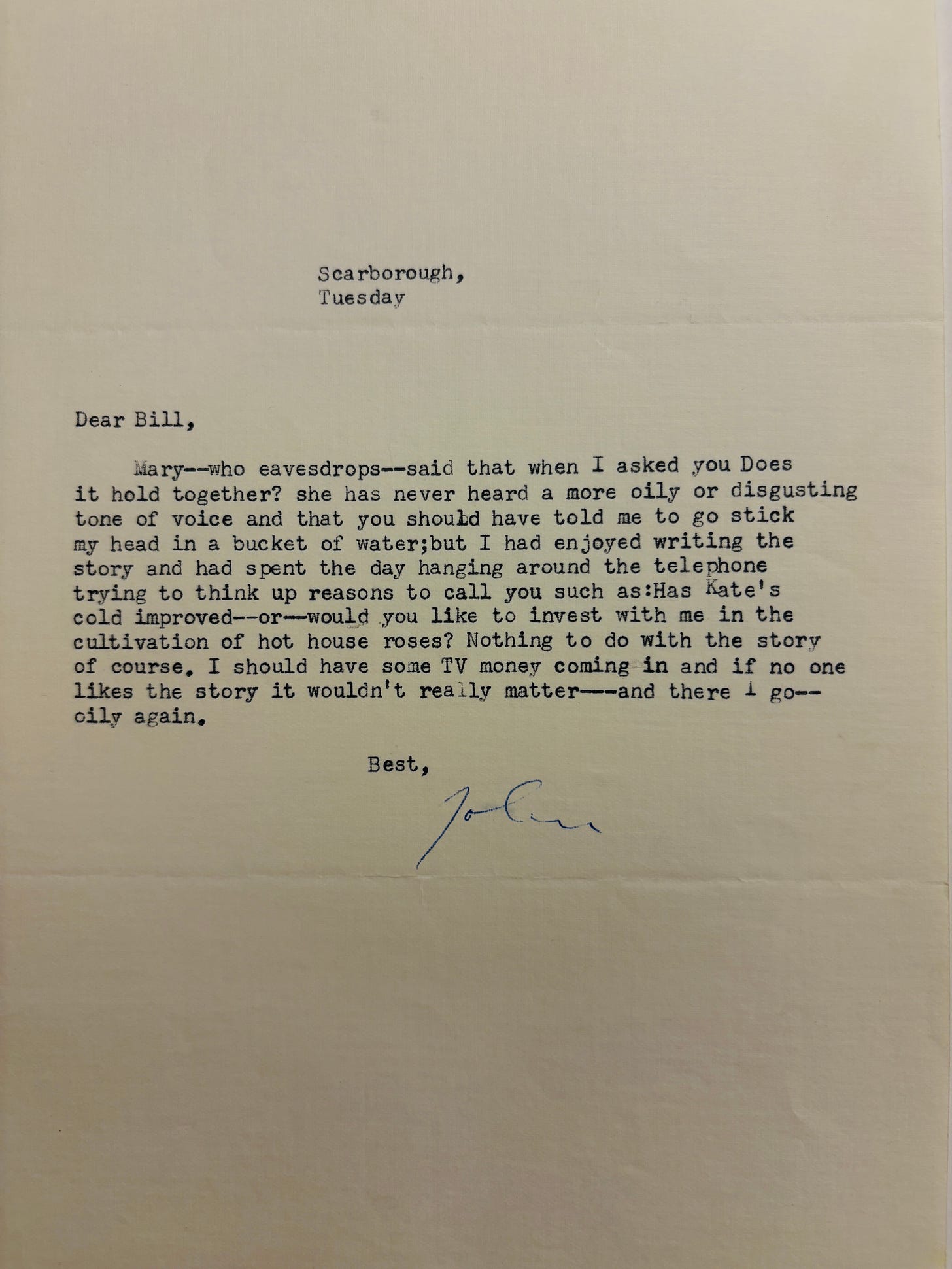“I’m humbled that….” I don’t know about other writers but, speaking for myself, and, I suspect, for others, I often think that I don’t belong in a particularly distinguished company. On the other hand, I feel constrained or frustrated by the kind of formulations that start with “I’m humbled that…” I find those pronouncements hypocritical. Which is all to say, that last week I was back at the Cullman Center, standing outside what was my office for a year. Look at that list of writers—I’m humbled that my name was added to that beautiful board.
The reason I was at the Cullman was because I was assembling materials for the writing workshop for school teachers this coming week. We will be ending the workshop with a reading of William Maxwell and I was going through his papers in the Berg Collection. Here is a marvelous letter that I found from John Cheever for Maxwell (this letter is the reason why my subtitle above has substituted “fat” for “oil”):
“…— and there I go — oily again.” I texted the image immediately to a couple of editors with whom I have adopted that distressing, wheedling tone that I think is a close cousin of what Cheever is describing.
There was another letter, this one by Maxwell himself. He had sent it to Philip Levine. When you read Maxwell’s prose, or even his other letters, he comes across as sweet-tempered and sensitive, but in this letter under the feather of excitement, there is a claw.
I liked the above letter because it exercises judgment. It is discerning about merit. And as a successful editor at the New Yorker, I’m sure Maxwell had that faculty in plenty. There is so much that is deplorable in our culture (forget literary matters, let’s start with war, and with the newly respectable practice of starving babies if they are of a different race or religion) that it is bracing to come across honest criticism. Not to mention, a rejection of rejection.
A fine, fine expression of all that I want to call “literary cringe”— a light mocking of the march of mediocrity—is this 2005 piece by Teju Cole. The poem captures a mood or a feeling: a sense of weariness where victory is being proclaimed. Is the writer saying that there are no victors, only losers? It is a harsh vision but I see it. I see you, I see myself, lonely amidst my victories and losses.
To The Victor
Eyo Festival, Lagos, November 2011 photo by author
The Pulitzer-winning
Stenographer
Asks the Poet Laureate
For a dance.
The Composer of the Year’s
Ears are talked off
By the Most Valuable
Player while,
In a darker corner,
The First Violinist's breasts
Are pressed
By the Professor Emeritus.
The words “Stockholm”
And “Wimbledon”
Ribbon through
The midsummer night's air.
Lannanites, MacArthurians,
Struggle in vain
To explain
How they did it.
An ancient pair
Of Nobel Prize winners
Suffocate
In each other’s perfume
And in a tiny chair
behind the bandstand,
Last year’s Booker finalist,
Looks ever so lost,
A silk tie in his hand.
(May 2005)






Loved reading this one - and you will be amused to know that my *first* reading was colored by my pre-coffee, no-glasses misreading that the Cheever letter was from John Cleese. Any idea the mental gymnastics required to make sense of that??
Such a delight reading this piece! Cole was such a fitting ending!